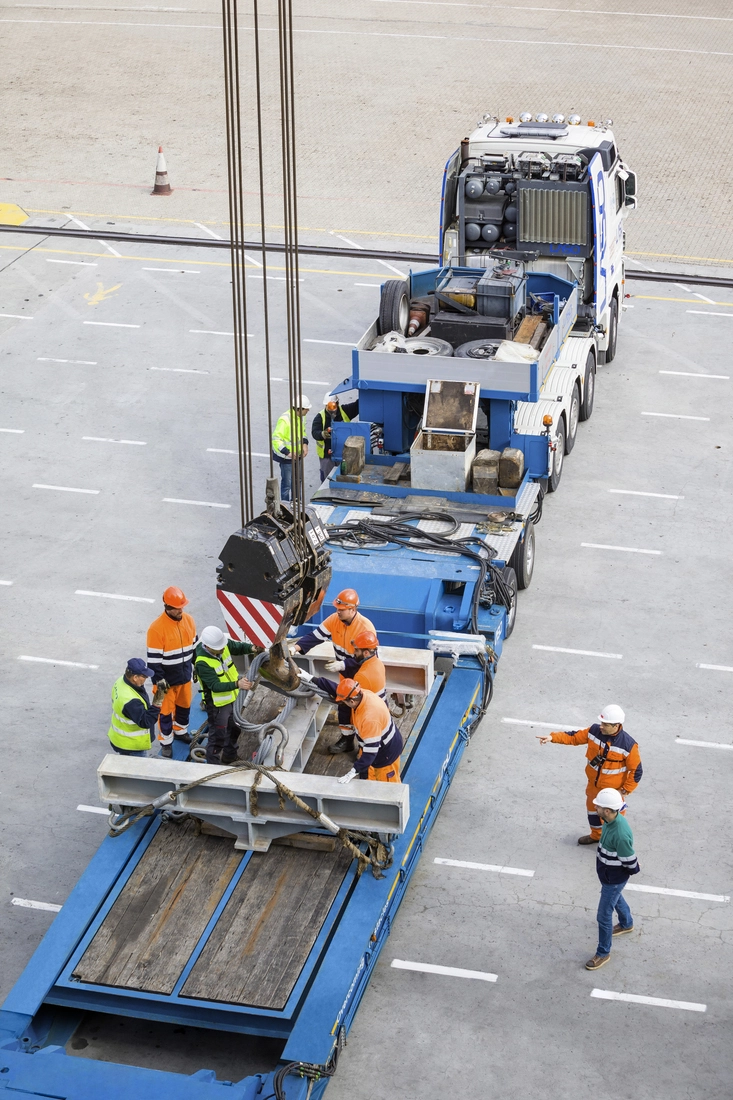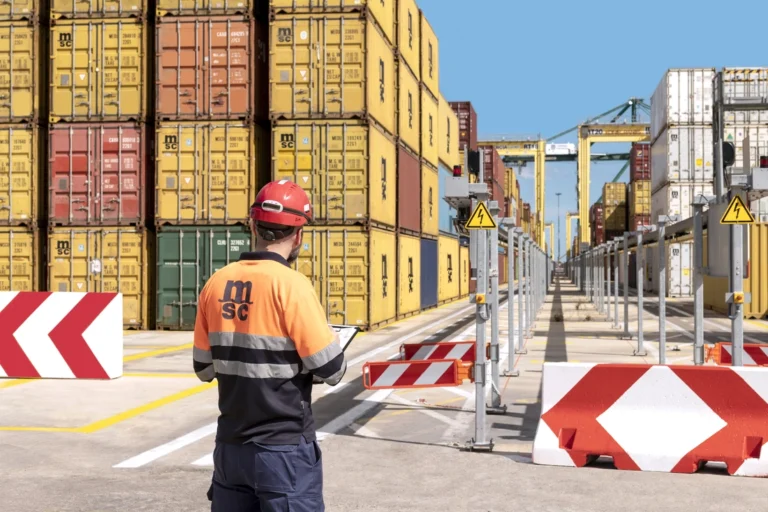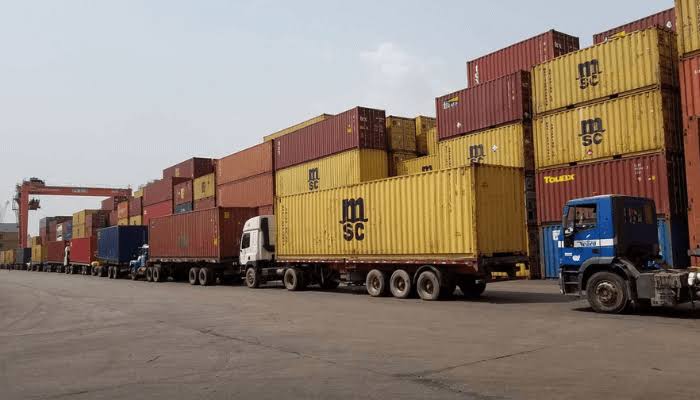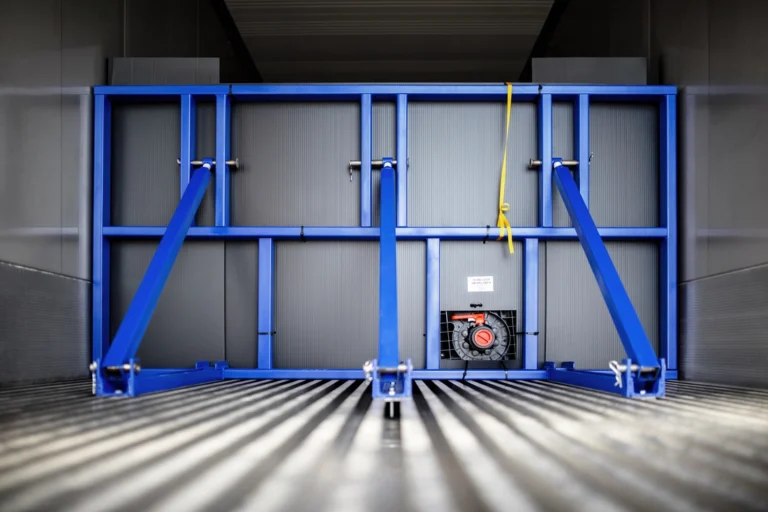How Inland Water Transport Boosts Ocean Freight Efficiency
From rivers to canals, inland waterways have been used to transport goods across countries for centuries. Today, this hasn’t changed, with shipping companies around the world frequently using inland water transport to ensure efficient, cost-effective, and environmentally friendly solutions for transporting cargo of all shapes and sizes.
Get a quote and ship with MSC today!
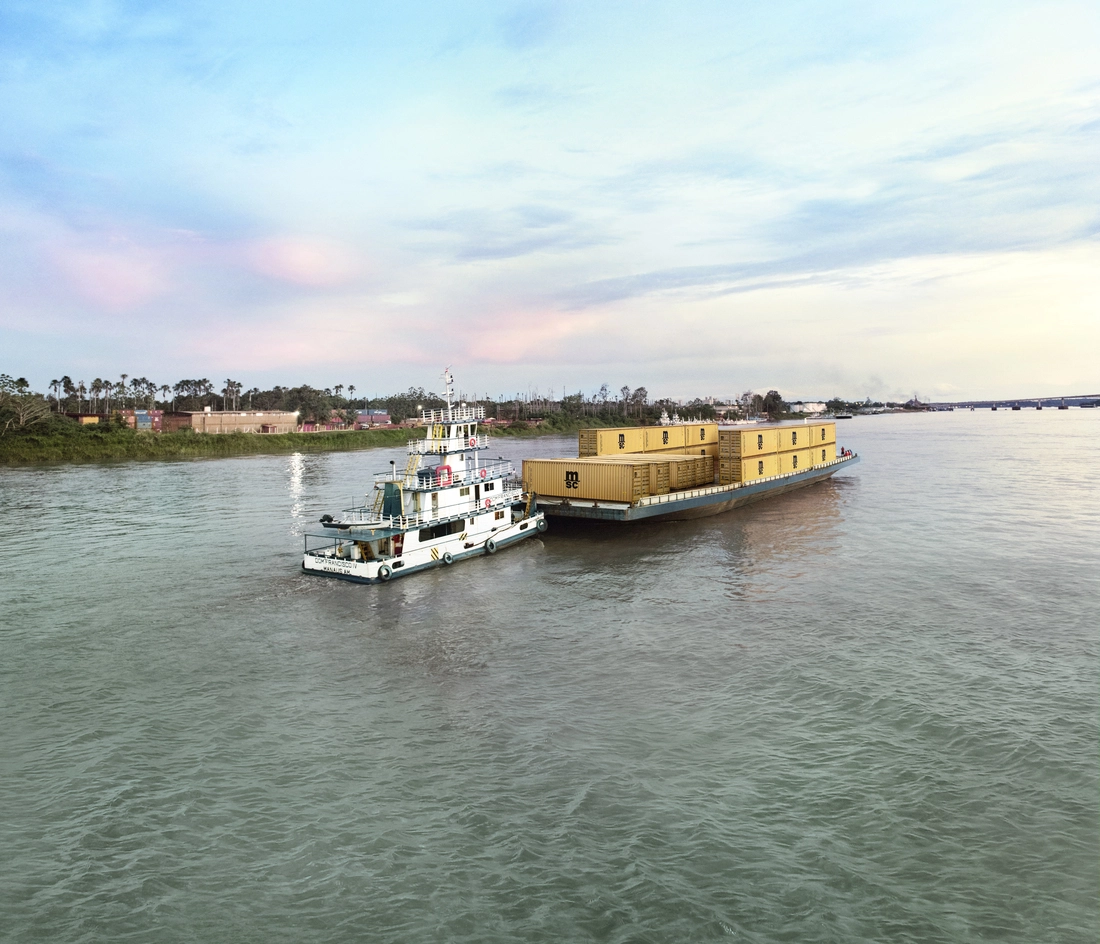
Waterway Transport:
An Overview
Inland water transport describes the movement of people and goods on navigable waterways. These are categorized based on their size, and range from:
- Class one includes smaller rivers and canals. These are more suitable for vessels and barges with shallow drafts.
- Classes two and three describe larger bodies of water that can accommodate a medium size vessel.
- Classes four and five describe large rivers and waterways. For this type of waterway transport commercial ships and bulk carriers are generally used.
 What types of goods are shipped using inland waterways?
What types of goods are shipped using inland waterways?
Although useful to many businesses, inland waterway transport is most utilized by industries that transport large quantities of bulk goods or containerized cargo such as coal, iron ore, agricultural products, and construction materials on a regular basis.
Other types of commodities transported using waterways include:
- Liquid bulk cargo including petroleum products such as crude oil, gas, diesel, as well as industrial chemicals and liquid fertilisers.
- Breakbulk cargo such as logs, lumber, pulpwood, or construction equipment including turbines and generators.
 Exploring Freight Services in Inland Water Transportation
Exploring Freight Services in Inland Water Transportation
Inland waterways play an important role in the overall intermodal transportation network by enabling goods to be transported to regions that may have more limited road or rail access. Being able to connect these areas with mainstream ports and terminals helps to facilitate more effective global trade.
Because of this, there are different inland water transportation freight services offered as part of the multimodal shipping solutions:
- Container barges that are specifically designed to carry shipping containers. These barges contribute immensely to the seamless integration of inland water transport into ocean shipping.
- RoRo (Roll-on/Roll-off) services: These types of transport usually include ferries or barges that are equipped with ramps to allow vehicles to be driven on and off. This type of vessel is hugely beneficial for shipping trucks and trailers over short distances because of the easier loading and unloading practices.
- Lighterage services which involves transferring cargo between barges and other vessels or land-based transportation at ports or terminals.
The Vital Role of Inland Waterways in Ocean Logistics
Aside from connecting remote regions or assisting in the transportation of cargo, waterway transportation plays an important role in ocean logistics for several reasons.
Cost Efficiency
Combining different modes of transport depending on the geography of the region will ensure that cargo can be transported to any part of the world. For your business this means you will be saving both time and money as your cargo will be on the move faster instead of waiting in storage.
But there are also wider economic benefits to inland waterway use. Compared to building and maintaining all the required road and rail systems that would be needed, using existing waterways as part of ocean logistics can be a cheaper alternative.
Environmental Advantages
Waterway transportation is also more environmentally friendly than the use of trucks due to the reduced amount of air and noise pollution.
Equally, inland waterways help reduce traffic congestion by lessening the amount of traffic on the roads. Not only does this help make your supply chain more efficient but also reduces your carbon footprint in the long term.
Supply Chain Resilience
Intermodal transportation using inland waterways also helps businesses build a more reliable supply chain. By providing alternative routes to roads or railways using natural resources, any disruptions that can impact land-based transportation are avoided. This helps you avoid any delay that could impact the next stage in your supply chain or prevent your cargo from reaching your customers on time.
